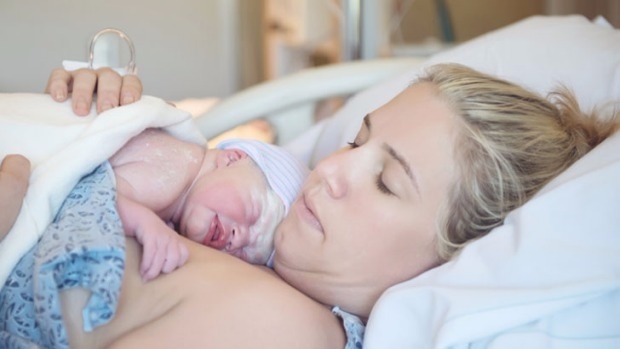
9 steps to ensure you have a Mother-baby friendly child birth experience!
27 Jun 2016 | 3 min Read
Ruth Malik
Author | 11 Articles
Mother-baby friendly practices empower the mom-to-be to give birth in the most natural and healthy way. It aims at prohibiting the overuse of unnecessary and harmful medicine and surgery. UNICEF and the World Health Organisation encourage Mother-baby friendly practices.
If you are keen to experience child-birthing in accordance with these principles, your first steps should be to find a gynaecologist/ healthcare provider who observe these practices. This is what you should look for:
1. Health care providers must explain to families the health benefits of good support for the mother during labour and birth. Mothers are also encouraged to have all the support they want during labour and birth. Her support team might be her husband, mother, family, friends, doula or midwife. Care providers who do not allow a mother to have her own support team are clearly not mother-baby friendly and thus are not safe.
2. They must advise drug-free pain relief methods and explain to the mother the lifelong health benefits to her and her baby of drug free birth. For example – a positive and encouraging atmosphere, hypnobirthing, water birth, massage, aromatherapy, heat compresses, good support, relaxation and breathing exercises.
3. They advocate practices which are natural, evidence-based and follow the mother’s body’s natural rhythm. Example – encourage labour to start naturally (upto 42 weeks) and letting labour unfold in its own time. Encourage eating, drinking, movement, rest and birthing in a position most comfortable. If mothers feel safe, supported and comfortable, birth progresses more easily.
4. The sensible ones avoid unnecessary procedures which have been proven to be harmful. For example, last trimester sonography, starting labour before 42 weeks, and speeding up labour artificially, fixed times for dilation and labour, vaginal exams, episiotomy, fundal pressure, inserting an Intra-Venous drip, lying flat on the back and epidurals.
5. They offer you to provide professional autonomous midwifery support to all women. Midwives are highly skilled clinical professionals who are trained in supporting normal birth. It is very difficult to find adequately trained midwives in India, generally hospitals are staffed by obstetric nurses who follow the orders of surgeons. Autonomous professional midwives improve health for mothers and babies.
6. A good gynaecologist will always implement practices known to support successful Breast Feeding. For example, delayed cord clamping allowing full blood volume to transfer to the baby, breast crawl, skin-to-skin contact with the baby. If the baby is unwell, ensure the mother’s full access to her new born and assist in kangaroo care. Ensure all mothers see a lactation consultant in their locality, based on reviews of other mothers.
7. They also provide access to evidence-based skilled emergency assistance. Unfortunately, many women in India are forced to undergo procedures or surgery in hospitals that are inadequately staffed or are not correct. Additionally, many who choose to birth at home find that they do not have supportive or adequate back up.
8. So, visit several doctors until you find one who is supportive of these practices. Hiring a doula and attending hypnobirthing classes can help if you choose home birth in presence of a certified professional midwife.
9. Most importantly, all healthcare providers must treat women with respect and honour their human rights. If you are not treated with respect and dignity, you are definitely not in the right hands.
If you are keen to get more information on this subject, register to attend the Human Rights in Childbirth Conference, Mumbai 2017.
Source for banner image: Essentialbaby
A


Related Topics for you
Suggestions offered by doctors on BabyChakra are of advisory nature i.e., for educational and informational purposes only. Content posted on, created for, or compiled by BabyChakra is not intended or designed to replace your doctor's independent judgment about any symptom, condition, or the appropriateness or risks of a procedure or treatment for a given person.
